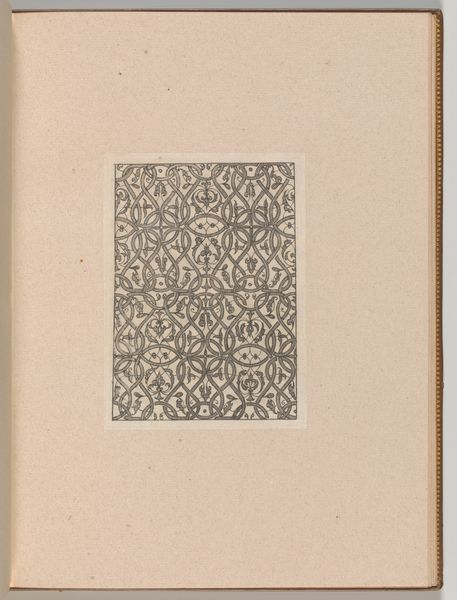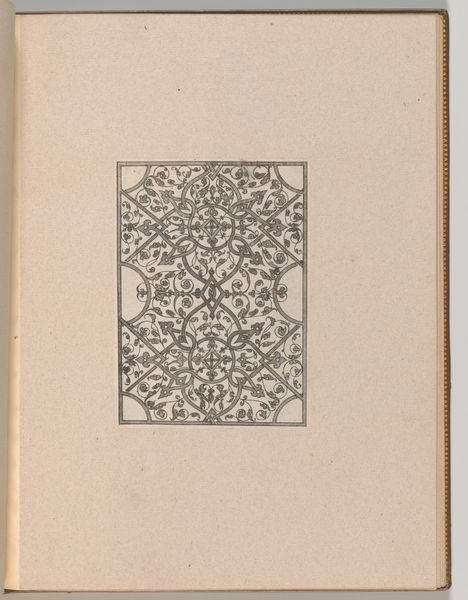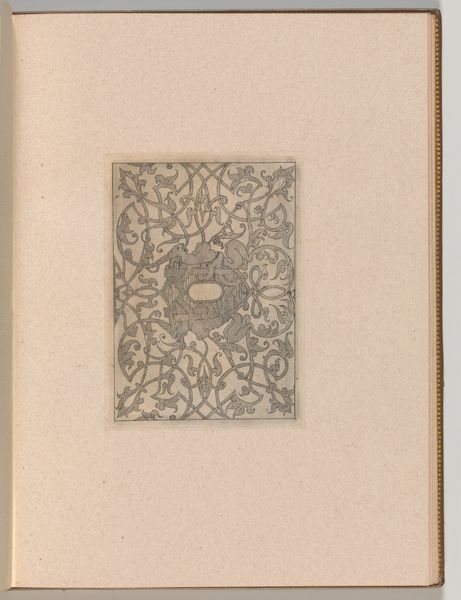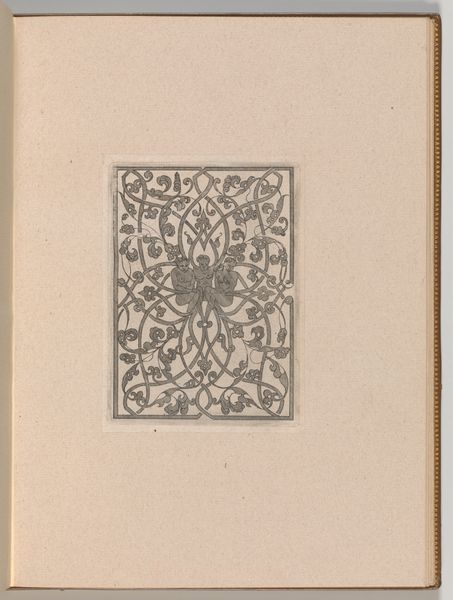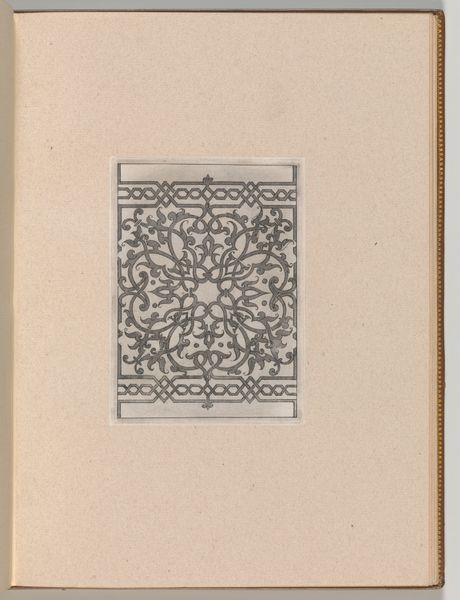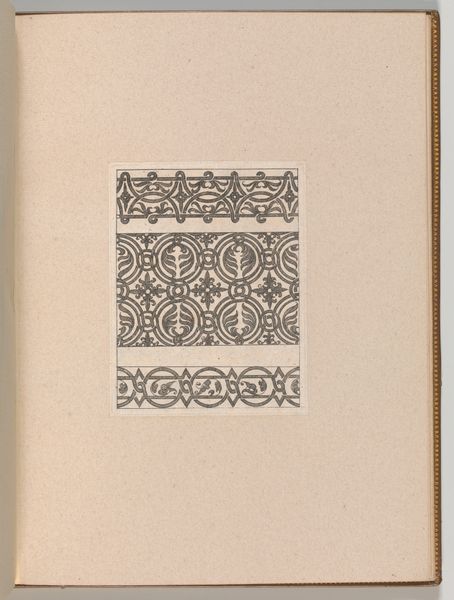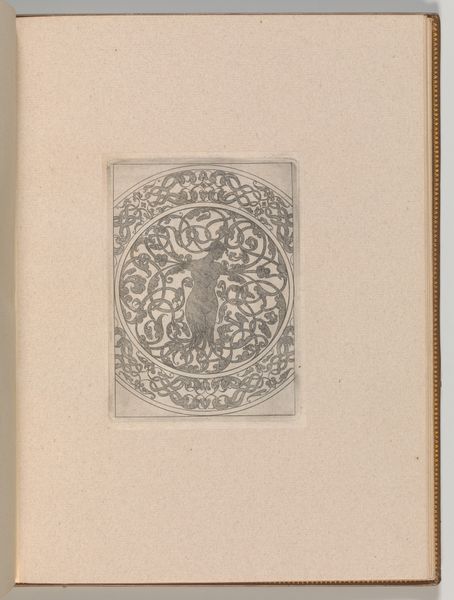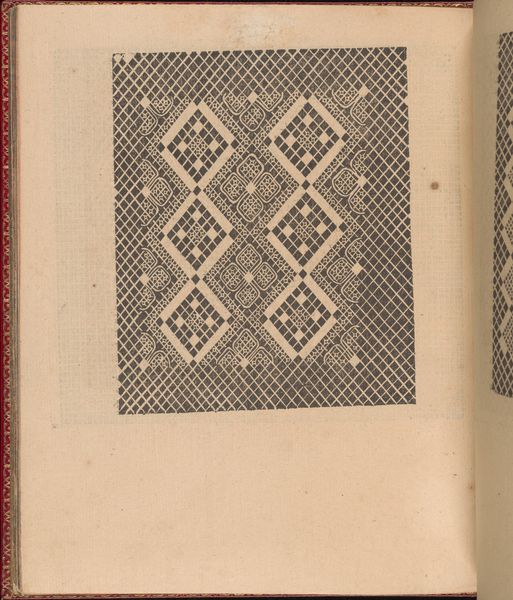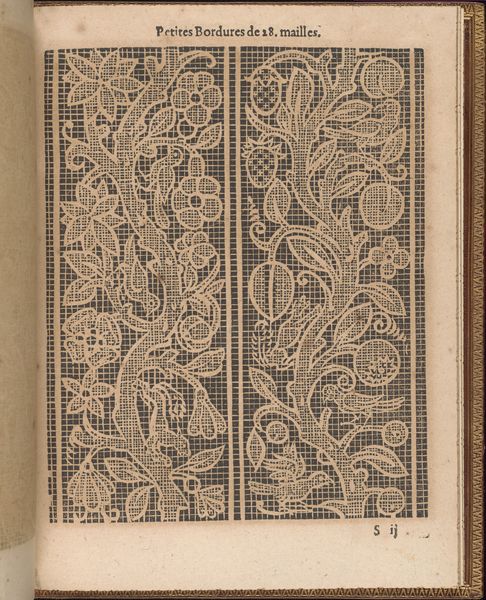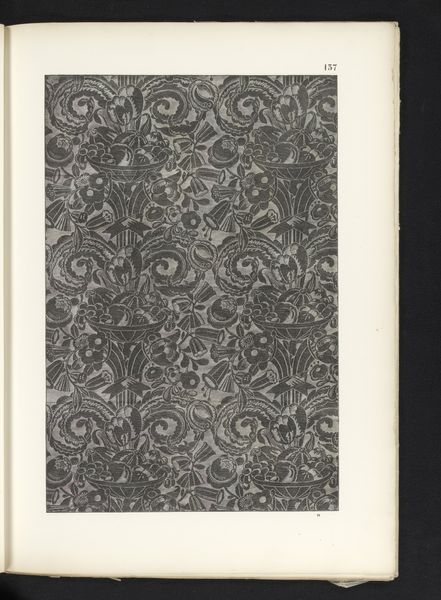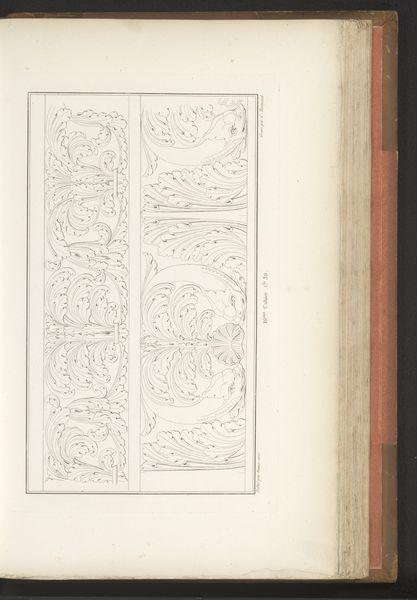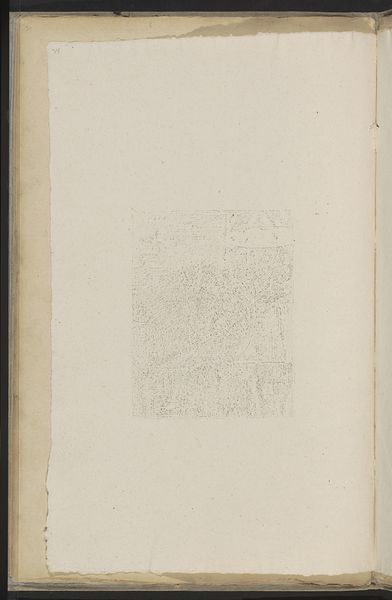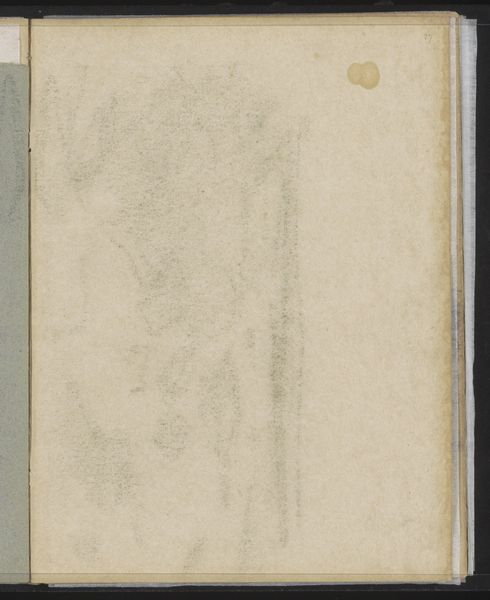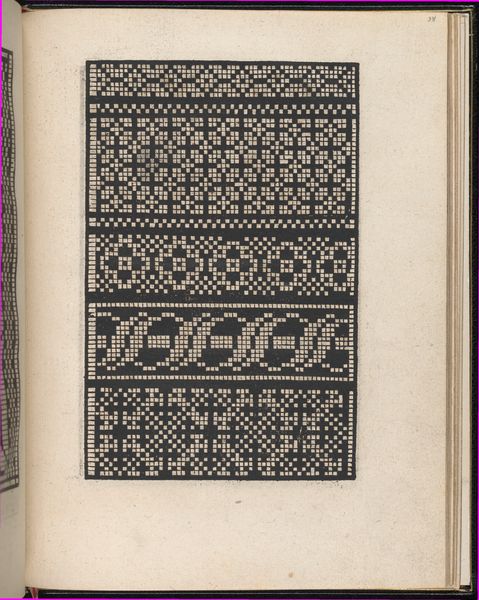
Copies after the 'Livre contenant passement de moresques' (plate 17) 1800 - 1900
0:00
0:00
drawing, ornament, print, paper, ink, engraving
#
drawing
#
aged paper
#
ornament
#
toned paper
#
ink paper printed
# print
#
white palette
#
paper
#
ink
#
geometric
#
islamic-art
#
decorative-art
#
engraving
Dimensions: Sheet: 4 13/16 × 3 9/16 in. (12.2 × 9 cm) Plate: 4 1/2 × 3 5/16 in. (11.5 × 8.4 cm) Overall: 10 1/16 × 7 7/8 in. (25.5 × 20 cm)
Copyright: Public Domain
Curator: Up next we have “Copies after the ‘Livre contenant passement de moresques’ (plate 17),” likely made between 1800 and 1900, after an original design by Jacques Androuet Du Cerceau. It's an ink engraving on paper, featuring geometric patterns reminiscent of Islamic art. Editor: Oh, it looks like a celestial blueprint. You know, like a guide to connecting constellations. I'm immediately drawn to the symmetry, but it's also somehow dizzying, like trying to decode a really beautiful, ancient circuit board. Curator: The artist definitely captures the spirit of Islamic geometric design—those repeating patterns, the suggestion of endlessness. You see similar motifs in mosques and other religious spaces. It speaks to a profound sense of order and spirituality, wouldn't you agree? Editor: Absolutely! I see how the geometric patterns reflect those found in Islamic art, hinting at the divine order inherent in the cosmos. I love how visual symbols like these are powerful because they are rooted in the deepest, most persistent levels of human consciousness. It almost acts as a mnemonic, a tool for remembering shared values, shared cultural dreams. Curator: Exactly. And, while the piece is a copy, that act of copying becomes significant too. It's about transmitting a visual language, ensuring its survival and continued relevance through generations. Editor: Right. Copies can become quite interesting and unique depending on when and where the artist lives. The very act of creating a replica transforms it in some way, whether intentionally or unintentionally. Do you think that the toning of the aged paper in this piece influences how people understand and relate to the geometry portrayed? Curator: Good question. It evokes nostalgia and mystery to be sure. Editor: Well, it really got me thinking about how even seemingly abstract patterns can carry so much cultural and spiritual weight. It’s a small print, but the image resonates way beyond its size. Curator: Indeed. It just goes to show you, even a copy can spark new interpretations and continue the conversation.
Comments
No comments
Be the first to comment and join the conversation on the ultimate creative platform.
